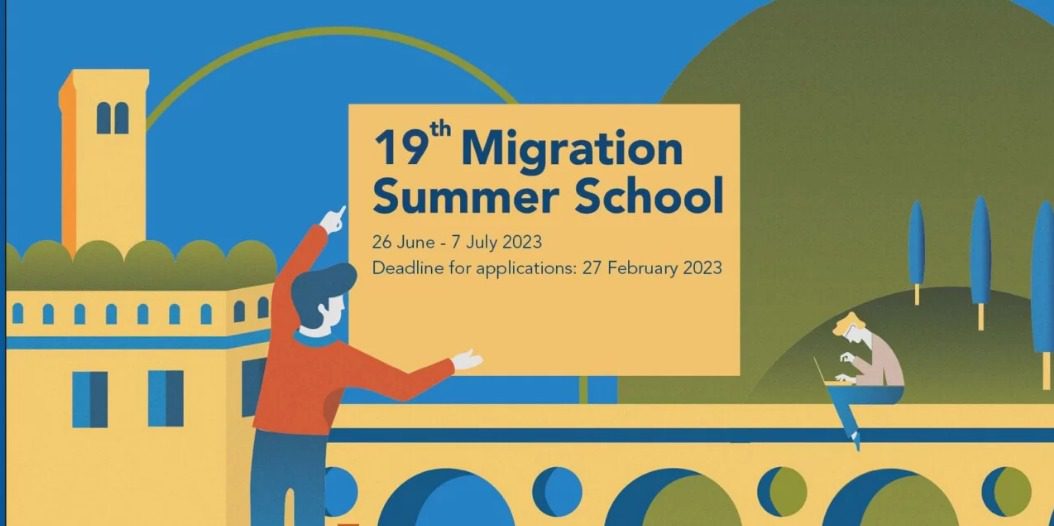The 19th Migration Summer School will provide participants with the opportunity to learn about recent trends in research on the transnational governance of international migration, asylum and mobility.
To achieve its objectives, high-level scientific knowledge will be blended with ample scope for participants to discuss their own ideas and develop an enhanced perspective on their own professional and career development.
The Summer School will follow a problem-orientated approach to encourage critical engagement. Participants will be supported by extensive support material, debates, group work, individual sessions with tutors and sessions during which participants can present their own projects.
The Summer School will have a global focus, addressing the following eight substantive topics through the contributions of professors and researchers from the Migration Policy Centre, complemented by distinguished keynote speakers:
- Migration drivers
- Impacts of migration
- Governance of migration
- Migratory attitudes
- Irregular migration
- Labour migration
- Citizenship and integration
- Asylum and refugee protection
The Summer School offers a unique opportunity to take advantage of the European University Institute's research facilities (including the Library) and to network with an enriching mix of postgraduate students, civil servants, officials from international organisations, representatives of NGOs and other civil society organisations, journalists, policy analysts, and professors from around the world. You can follow updates on Twitter with the hashtag #MPCSummerSchool.
Format
A key objective of the Summer School is to create a collaborative experience for all participants. The combined perspectives of political, economic, sociological, legal, anthropological and practice-based approaches to the study of migration will provide participants with a deeper understanding of one of the most complex and multifaceted phenomena affecting governments and society around the world. The teaching format combines the following activities:
- Daily seminars with an emphasis on question-and-answer sessions and group exercises
- Pre-recorded content, including talks, interviews, background videos, etc.
- Plenary sessions with high-level speakers
- Individual and group assignments
- Panels for participants to present their own research/professional projects
- Individual consultation sessions with teaching staff
- A certificate of participation
Over the 10 days, we anticipate around 60 contact hours supported by a variety of support materials. The course materials comprise a combination of readings, case studies, problem-based exercises, short clips. All materials will be uploaded online before the start of the Summer School. We will allow time for reading and preparation for the different sessions during the Summer School. This will allow for self-paced work, as well as facilitating active exchange between participants and lecturers throughout the course.
In addition, participants will be divided into small working groups. These groups will meet regularly during the Summer School to work on a key issue to prepare a presentation for the closing plenary sessions.
Date
The 19th Migration Summer School will take place between Monday 26 June and Friday 7 July 2023. Participants should arrive in Florence on Sunday 25 June and leave on Saturday 8 July 2023.
Eligibility
Successful applications to the Summer School will fulfil the following criteria:
- A relevant master's degree or equivalent experience;
- A solid professional and/or research background in international migration;
- An excellent working knowledge (speaking and writing) of English;
- Availability to attend all the teaching sessions of the programme.
Researchers, civil servants, journalists, teachers and professionals from intergovernmental and governmental agencies working in areas related to migration are encouraged to apply.
Fees
The fee is 2000 euros and includes: all tuition fees, all course materials, access to the EUI library, wifi access at the EUI, social activities, lunches and coffee breaks on conference days, local transport.
Accommodation costs will be covered by the participants. The MPC secretariat will support successful candidates in finding accommodation.
Scholarships
Seven scholarships will be funded by the School of Transnational Governance (EUI) on the basis of merit. The scholarships will cover tuition fees, travel and accommodation and will be awarded to exceptional candidates applying from low- and lower-middle-income economies in Africa and Asia, according to the following criteria:
- PhD students or early career academics, early or mid-career professionals (e.g. in politics, the civil service, the media and non-governmental organisations), able to demonstrate both professional experience and the potential for future excellence in the political sphere;
- individuals genuinely involved in migration-related policy issues, either by enrolling in a doctoral programme or by demonstrating substantial relevant career experience;
- Self-motivated, able to present a clear explanation of why and how the candidate will benefit from taking part in the summer school;
- Fluent in written and spoken English.
Candidates can only submit one application, either for a full-payment place or for a scholarship. Scholarships are not intended for participants who can be funded by their own institutions.
Travelling
All participants (excluding those awarded a scholarship) are kindly asked to organise and cover the costs of their travel to and from Florence, as well as their local transport in Florence.
How to apply
Applications must be made by submitting a completed form by 27 February 2023 at 10pm. We regret that applications submitted after the deadline will not be considered.
Apply here.


